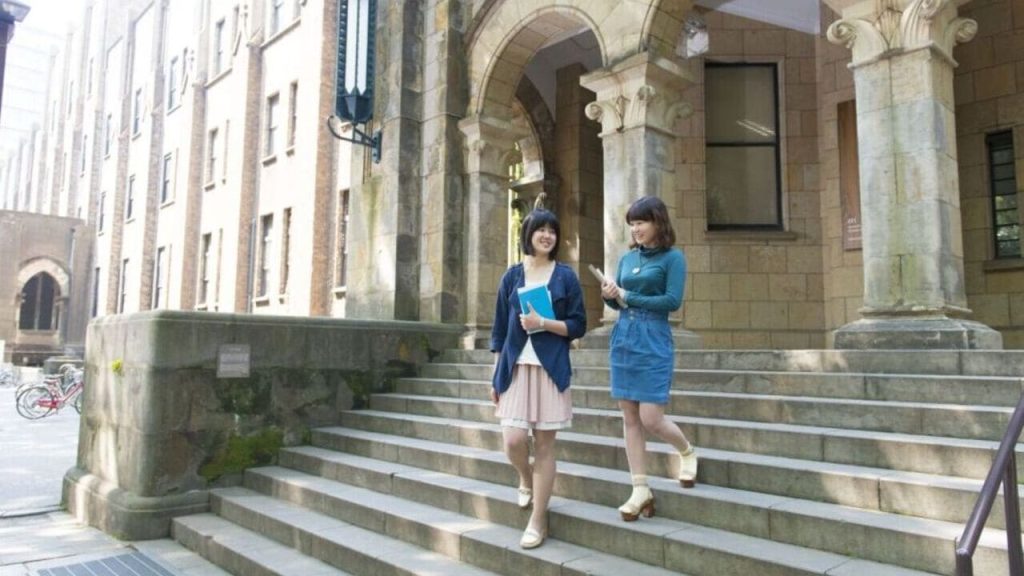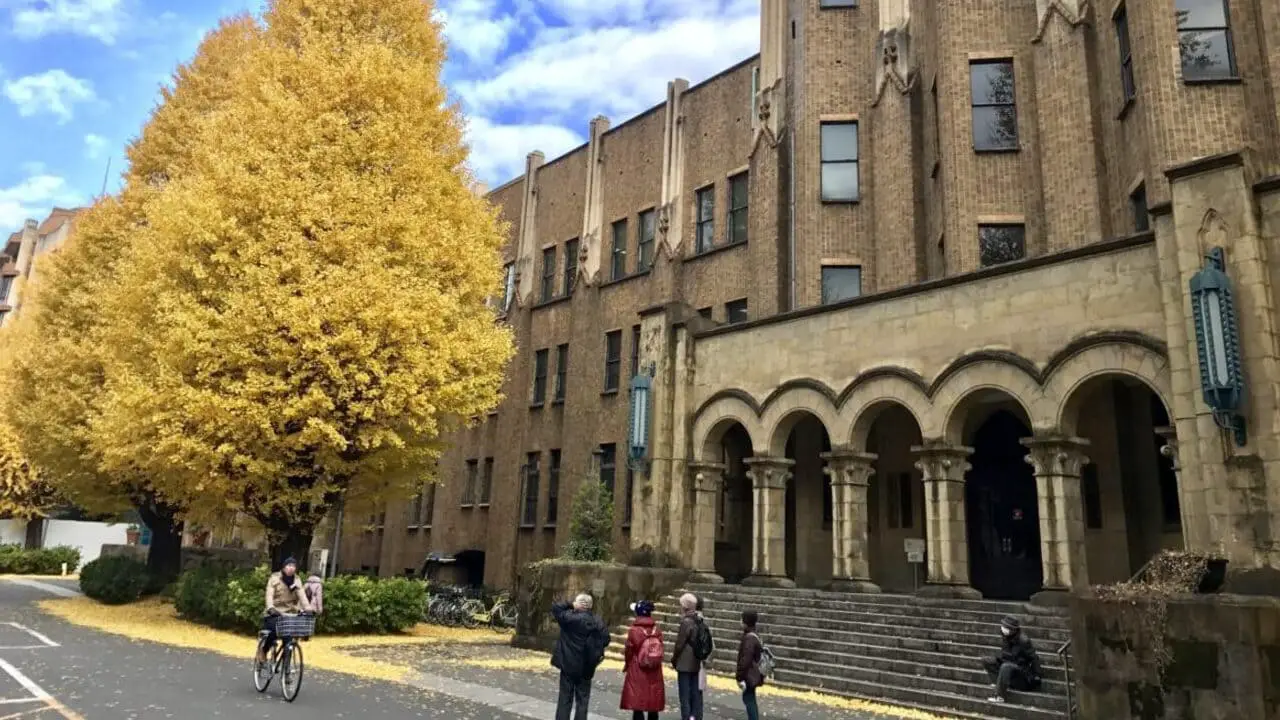Tokyo, the bustling capital city of Japan, is renowned for its world-class education system and has become a top destination for students around the globe who seek to attain the highest level of education.
Tokyo’s universities are a melting pot of international cultures and academic disciplines, which foster diversity and inclusiveness. With its advanced infrastructure, research facilities, and expert faculty, Tokyo offers some of the most exceptional higher education institutions globally.
The best universities in Tokyo have established themselves as world leaders in education, offering a wide range of undergraduate and graduate programs in various disciplines. These universities have produced some of the most prominent alumni in history, including Nobel Laureates, astronauts, politicians, and influential business leaders.
The University of Tokyo, Waseda University, Keio University, and Tokyo Institute of Technology are just a few of the many universities that attract students from all over the world, providing an opportunity to study in a dynamic, cutting-edge, and multicultural environment.
In this article, we will provide an overview of the best universities in Tokyo, including their history, location, campus culture, and notable faculty. Additionally, we will highlight the unique benefits and infrastructure offered by each institution.
Whether you are an aspiring scientist, an entrepreneur, or a leader in your field, Tokyo’s universities offer exceptional academic opportunities for students to achieve their goals and shape their futures.
Criteria for Ranking
The criteria for ranking the best universities in Tokyo involve several factors, which we have considered in this article. These criteria include academic reputation, research output, student satisfaction, campus culture, international recognition, and diversity.
- Academic Reputation: Academic reputation is a crucial factor in determining a university’s ranking. It reflects the quality of teaching, research, and academic programs. A university’s reputation is determined by the number of highly cited researchers, awards, and recognition that its faculty and students have received.
- Research Output: Research output refers to the number of research publications, research grants, and patents that a university produces. It reflects the quality and quantity of research conducted by the university’s faculty and students. The universities with the highest research output are generally considered to be the best research institutions.
- Student Satisfaction: Student satisfaction reflects the quality of education and the overall student experience. It is determined by several factors, including the quality of teaching, facilities, resources, and student support services. The universities that have a high student satisfaction rate are those that provide excellent academic support, extracurricular activities, and a comfortable learning environment.
- Campus Culture: Campus culture is another essential criterion for ranking universities. It reflects the diversity of the student body, the quality of student life, and the overall campus atmosphere. A positive campus culture is one that fosters diversity, inclusiveness, and a sense of community among the student body.
- International Recognition: International recognition refers to the level of recognition that a university receives globally. It reflects the quality of education, research, and the global reputation of the university. Universities with high international recognition attract students, faculty, and research collaborations from around the world.
- Diversity: Diversity is an essential criterion for ranking universities. It reflects the number of international students, faculty, and the overall diversity of the student body. A diverse student body creates a multicultural learning environment that fosters inclusiveness and a global perspective.
Top 5 Universities in Tokyo

1. University of Tokyo
Established in 1877, the University of Tokyo is the oldest and most prestigious university in Japan. The university is located in the heart of Tokyo, with its Hongo campus being the main campus.
The university has 10 faculties, 15 graduate schools, and several research institutes, providing a wide range of academic programs across various fields.
The University of Tokyo has produced several Nobel laureates, including Shin’ichiro Tomonaga, Hideki Yukawa, and Yoichiro Nambu.
The university is also renowned for its research output and has established over 25 research centers, including the Earthquake Research Institute and the Institute for Cosmic Ray Research.
The campus of the University of Tokyo is known for its beautiful scenery, with its iconic Akamon gate being a popular tourist destination. The university offers a diverse campus culture with over 450 international students and a wide range of extracurricular activities.
The university is equipped with advanced facilities, including state-of-the-art research labs, a modern library, and various sports facilities.
2. Waseda University
Founded in 1882, Waseda University is a private research university located in Shinjuku, Tokyo. The university has ten faculties and fifteen graduate schools, offering academic programs across various fields, including humanities, social sciences, and natural sciences.
Waseda University is known for its vibrant campus culture, with a wide range of extracurricular activities, including clubs, sports, and cultural events. The university has produced several notable alumni, including former Japanese Prime Minister Naoto Kan and novelist Haruki Murakami.
The campus of Waseda University is equipped with modern facilities, including research labs, libraries, and sports facilities.
The university is also committed to research excellence, with several research institutes, including the Institute for Advanced Study and the Waseda Research Institute for Science and Engineering.
3. Keio University
Founded in 1858, Keio University is a private research university located in Tokyo. The university has six faculties and 14 graduate schools, offering academic programs across various fields, including law, medicine, and business.
Keio University is known for its strong emphasis on research, with several research centers and institutes, including the Research Institute for Digital Media and Content and the Global Security Research Institute.
The university also offers a diverse campus culture, with over 3,000 international students and various extracurricular activities.
The campus of Keio University is equipped with advanced facilities, including research labs, libraries, and sports facilities. The university has also produced several notable alumni, including former Japanese Prime Minister Junichiro Koizumi and Nobel laureate Yoichiro Nambu.
4. Tokyo Institute of Technology
Established in 1928, Tokyo Medical and Dental University (TMDU) is a national university located in Tokyo. The university has four faculties, including Medicine, Dentistry, Health Care Sciences, and Nursing.
TMDU is known for its focus on health sciences and is committed to promoting research excellence in these fields. The university has several research institutes, including the Institute of Medical Science and the Institute of Biomaterials and Bioengineering.
The campus of TMDU is equipped with modern facilities, including research labs, libraries, and sports facilities. The university also offers a diverse campus culture, with over 700 international students and various extracurricular activities.
5. Rikkyo University
Rikkyo University is a private university located in Tokyo, Japan. It was founded in 1874 as a Christian university and is one of the oldest and most prestigious universities in Japan.
Rikkyo offers undergraduate and graduate programs in various fields, including law, economics, business, science, sociology, and art.
The university is known for its strong emphasis on English-language education and has a number of programs taught entirely in English, attracting many international students from around the world.
Rikkyo is also home to a number of research centers and institutes, including the Research Center for Ars Vivendi and the Center for Intercultural Communication.
Rikkyo has a diverse student body and offers a range of extracurricular activities, including sports teams, cultural clubs, and volunteer organizations. The university is also located in a vibrant and exciting part of Tokyo, providing students with many opportunities to experience Japanese culture and city life.
Comparison and Contrast of the Top Universities
Academic programs:
- The University of Tokyo offers a wide range of academic programs across various fields, including medicine, law, engineering, social sciences, and humanities.
- Kyoto University is particularly known for its strong programs in natural sciences, including physics, chemistry, and biology.
- Waseda University is known for its strong programs in business and social sciences, as well as its international programs.
- Keio University offers a variety of programs in fields such as law, economics, business, and medicine.
- Rikkyo University has a strong focus on liberal arts education, offering programs in fields such as literature, economics, law, and business.
Faculty and research opportunities:
- The University of Tokyo is home to many notable researchers and scholars in various fields and offers numerous research opportunities for students.
- Kyoto University is also known for its research capabilities, particularly in the natural sciences.
- Waseda University has a strong emphasis on interdisciplinary research and offers research opportunities for students in various fields.
- Keio University boasts a number of notable faculty members and offers research opportunities in fields such as law, economics, and medicine.
- Rikkyo University has a strong commitment to undergraduate research and offers numerous opportunities for students to engage in research projects.
Campus facilities:
- The University of Tokyo has several campuses throughout the city and offers modern facilities for students and researchers.
- Kyoto University is known for its beautiful campus, which includes historic buildings and modern facilities.
- Waseda University is located in the heart of Tokyo and offers a modern, urban campus with state-of-the-art facilities.
- Keio University has several campuses throughout the city, each with its own unique atmosphere and facilities.
- Rikkyo University has a beautiful, spacious campus located in the suburbs of Tokyo, with modern facilities and green spaces.
Student life:
- The University of Tokyo offers a vibrant student life, with numerous clubs and organizations for students to get involved in.
- Kyoto University is known for its relaxed and laid-back atmosphere and offers plenty of opportunities for students to enjoy the city and its cultural offerings.
- Waseda University is located in the heart of Tokyo and offers a dynamic and fast-paced student life, with many opportunities to engage with the city’s culture and nightlife.
- Keio University has a strong sense of community, with many opportunities for students to engage with one another and get involved in various activities.
- Rikkyo University has a close-knit student community, with many opportunities for students to participate in clubs and activities, as well as enjoy the nearby natural and cultural attractions.
Conclusion
In conclusion, Tokyo is renowned for its world-class education system and has become a top destination for students from around the world who seek to attain the highest level of education.
The best universities in Tokyo have established themselves as world leaders in education, offering a wide range of undergraduate and graduate programs in various disciplines.
The University of Tokyo, Waseda University, Keio University, and Tokyo Institute of Technology are just a few of the many universities that attract students from all over the world, providing an opportunity to study in a dynamic, cutting-edge, and multicultural environment.
These universities offer exceptional academic opportunities for students to achieve their goals and shape their futures, and the criteria for ranking these universities involve several factors, including academic reputation, research output, student satisfaction, campus culture, international recognition, and diversity.
With their advanced infrastructure, research facilities, and expert faculty, Tokyo’s universities are well-positioned to continue to produce some of the most prominent alumni in history, including Nobel Laureates, astronauts, politicians, and influential business leaders.
Additional Posts:

